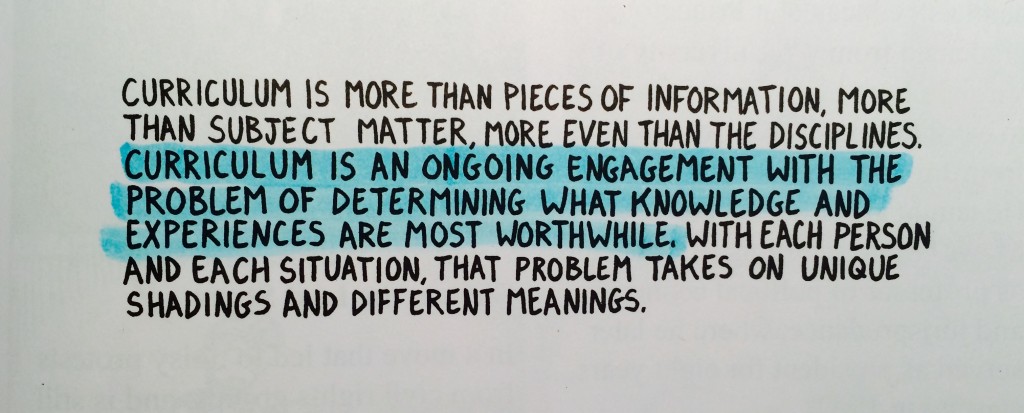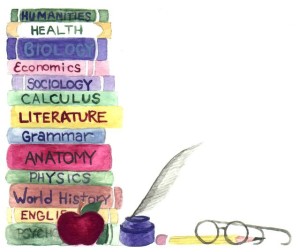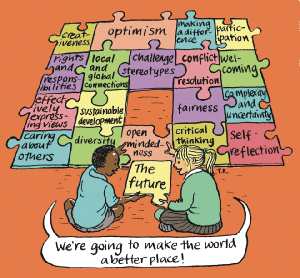Re-Situate “Curriculum”

Ayers (2010) presents the struggle that every teacher experiences throughout their entire career: Defining curriculum as a “means to” rather than an “end goal”. The curriculum outlines the important aspects of learning that students should demonstrate throughout each year of their education. However, we cannot allow this curriculum to be the only accepted learning in our classrooms.
Teamwork, initiative, responsibility, interpersonal relationships… these are all skills that are important aspects of learning that perhaps aren’t explicitly outlined in the curriculum. Also, what about the teachable moments that arise each and every day in our classrooms? Should we refuse to build on those, simply because they are not outlined in the curriculum? What if a student wants to solve a particular problem that is covered in a later grade? Should we delay this learning to ensure that everyone’s education is at the same pace?

As every educator should do, we must re-situate our initial understandings of “curriculum”. Ayers poses an number of interesting questions that guide his approach to implementing a curriculum:
- Are challenges from classroom to community fair game for investigation?
- Are there opportunities for discovery and surprise?
- Are students actively engaged with primary sources and hands on materials?
- Is productive work going on?
- Is the work linked to student questions or interests?
- Is work in my classroom pursued to its far limits?
There is so much more to student learning than what is outlined in the mandated curriculum. I am by no means “rebelling” against these documents; in fact, I place extremely value on these documents as they truly do guide teaching and learning. However, I do believe that we as teachers must do more than simply follow the curriculum. We must create these situations in which students can explore and learn to become efficient learners, rather than focusing all efforts on ensuring each students achieves every specific expectation outlined in their grade level.
